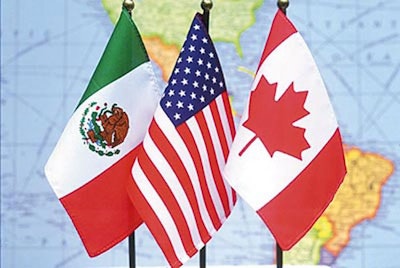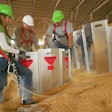
I think it’s about time we had some good news. With all that is going on nationally — e.g. the spreading of a pandemic, potential statewide closures and divisive politics running rampant — we can at least all agree that the new trade deal with our neighbors to the north and south is good for agriculture.
The United States-Mexico-Canada Agreement was signed by the three nations in November 2019 and went into effect on July 1, replacing the North American Free Trade Agreement from 1994.
The agreement is so important because Mexico and Canada are our country’s largest and second largest export markets for feed, feed ingredients and pet food, according to the American Feed Industry Association. Since NAFTA was implemented, animal food exports to Canada and Mexico nearly quadrupled, growing from $669 million in 1993 to $3.3 billion in 2019.
The new agreement is even better than its predecessor because it:
■ Modernizes border procedures
■ Provides a rapid-response to address trade challenges
■ Includes an enforceable biotechnology chapter
■ Provides the highest sanitary standards of any trade agreement
■ Maintains zero tariffs on U.S. feed grains, co-products and ethanol
The USMCA is expected to increase U.S. ag exports by $2 billion and result in an overall increase of $65 billion in GDP. Canada will increase quotas on U.S. dairy products, profiting American dairy farmers $242 million.
The National Grain and Feed Association also noted what this means for trade with other nations in the future.
NGFA’s President Randy Gordon said in a statement, “For grains, oilseeds and their derived products … the USMCA preserves and strengthens market access. But the accord’s longest-lasting and most important impact may well be the solid framework it provides for the United States to negotiate significant new trade agreements with other countries, including Japan, Vietnam, the United Kingdom, Kenya and other nations on the African continent.”
You can learn more about the history and benefits of the USMCA in ourGlobal Connection column by the U.S. Grains Council.
With so much uncertainty in the coming months, one thing you can count on is that this win for trade is a win for agriculture! ■


















